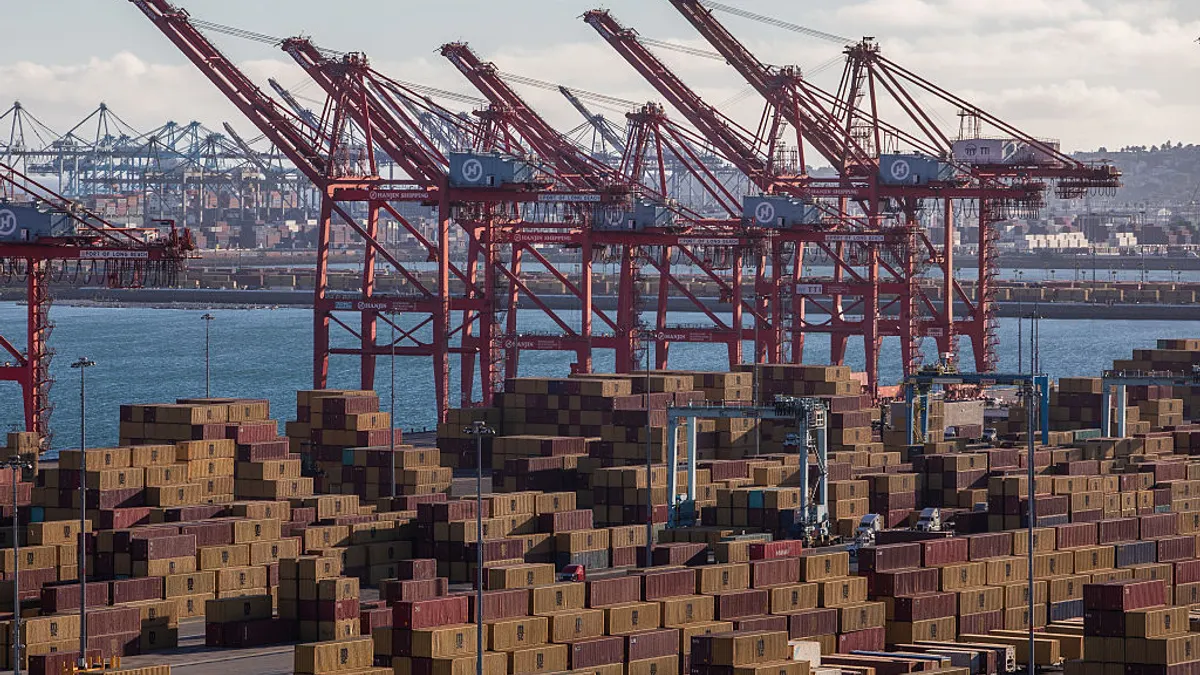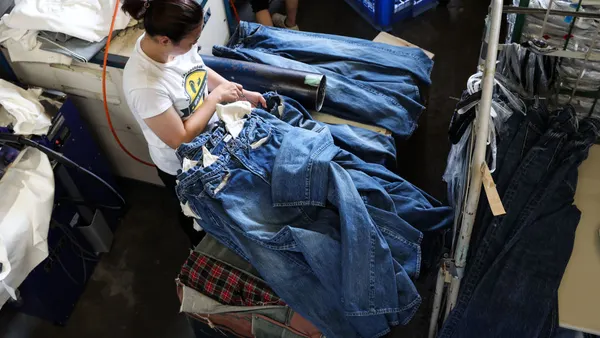Dive Brief:
- Uncertainty surrounding tariffs and the economy is driving manufacturing CEOs to prioritize supply chain resilience and AI investments, according to a 2025 CEO Outlook survey conducted by KPMG in September.
- Among the 400 leaders surveyed, 63% of manufacturing CEOs said supply chain challenges, including disruptions to global supply chains, are hindering their ability to innovate at scale.
- Despite challenges in innovation, 68% of surveyed CEOs named AI as a top investment priority for their organization, and 69% plan to spend up to 20% of their budget on AI over the next year.
Dive Insight:
Uncertainty in the business operating environment is “casting a very, very long shadow for manufacturers,” said Brian Higgins, KPMG’s U.S. industrial manufacturing sector leader. “Economic policy uncertainty has been difficult to navigate, to say the least.”
Tariff uncertainty has weakened demand in the manufacturing sector. The industry contracted for the seventh consecutive month in September, as measured by the Institute for Supply Management’s Purchasing Managers’ Index, and companies have reported declines in orders as tariffs weigh on exports.
But manufacturing executives aren’t sitting on the sidelines waiting for better times to come along. Rather, they’re putting supply chain resilience “front and center,” Higgins said, noting that manufacturers are deploying various strategies to guard against supply chain risks.
Some are refining or renegotiating their agreements with suppliers to incorporate tariff-related costs. Others are using dynamic pricing or financial hedging. Some manufacturers are looking to move production or reshoring to improve the resilience of their supply chains. General Motors, for one, plans to spend more than $10 billion over the next two years to onshore more of its production, and other companies have announced their own major pledges.
Restructuring the supply chain, however, is less common than financial engineering, Higgins noted. Supply chain alterations take time and could come with higher labor costs or upfront capital to expand manufacturing capacity. With tariffs fluctuating frequently, a long-term investment may not make sense for many businesses, according to Dan Cannistra, a partner at international law firm Crowell & Moring.
“It's very difficult to make changes in supply chains without knowing where exactly the tariffs are going to be a year from now,” Cannistra said.
In fact, only 18% of manufacturing CEOs in KPMG’s survey named reconfiguring the supply chain among their top priorities. “There's a little bit of a wait-and-see approach that's prevalent,” Higgins said.
As manufacturers battle tariff-related cost hikes, they’re focusing on efficiency – and one way to do that is via automation and AI. Businesses are taking the next step from generative AI, which includes large language models and chatbots, to agentic AI, in which bots automatically complete actions or tasks based on instructions.
KPMG’s survey revealed that many CEOs expect to embed AI agents across their organizations, with leaders managing multiple AI agents as part of their roles. More than half (54%) of the surveyed manufacturing CEOs anticipate agentic AI will significantly improve efficiency or drive growth.
Procurement is particularly ripe for AI, Higgins noted. AI can help design and manage contracts while also preventing contract value leakage, in which a contract's potential value differs from the actual value due to flawed management or execution.
Higgins also sees promise in AI for manufacturers’ financial planning and forecasting, as well as on the production floor.
“Automation, AI, humanoids, robotics – that is very needed,” Higgins said.
Manufacturing CEOs recognize that AI investments come with some up-front costs, but they expect to see a return on investment within one to three years, per KPMG’s survey

















